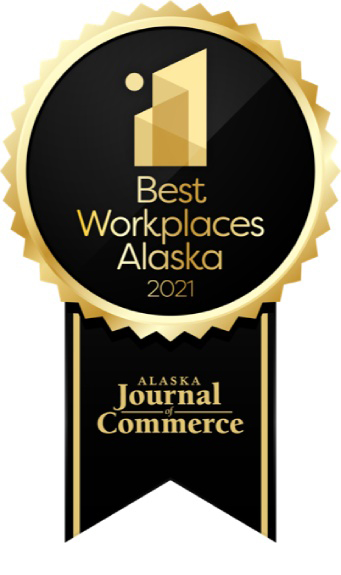2022 State Individual Mandates and Reporting Requirements
February 14, 2022
In the last two years, some jurisdictions have enacted their own individual mandate, similar to the repealed federal individual mandate that requires residents to have minimum essential coverage. These mandates also include various reporting requirements for employers to help the state reconcile which individuals were covered.
BACKGROUND
The Tax Cuts and Jobs Act of 2017 reduced the individual mandate penalty to $0.00 effective January 1, 2019. Worried about a negative impact in the individual health insurance market with no incentive for individuals to purchase health insurance policies, some states responded by looking into state-based “individual mandates.”
Massachusetts has had a state individual mandate (with associated employer reporting requirements) in effect for several years, and now four additional states (California, New Jersey, Rhode Island, and Vermont) and the District of Columbia have followed suit.
Minnesota, Hawaii, Maryland and Washington have followed in their footsteps but have no employer reporting requirements at this time.
Note that many states have similar, but not completely identical, requirements. Please refer to our State Reporting Requirements Guide for reporting details, penalties and links to state websites.
SUMMARY OF CURRENT STATE EMPLOYER REPORTING REQUIREMENTS
Only employers offering coverage to a state resident must report
| State / District |
Reported To |
Forms Required |
Deadlines |
|---|---|---|---|
| California | Franchise Tax Board (FTB) |
Federal Forms 1094/1095 |
|
| Hawaii | No employer reporting requirements at this time. | ||
| Maryland | No employer reporting requirements at this time. | ||
| Massachusettes | Department of Revenue (DOR) | State Form MA 1099-HC |
|
| Minnesota | No employer reporting requirements at this time. | ||
| New Jersey | Department of Revenue and Enterprise Services (DORES) secure filing system | Accepts Federal Form 1095 |
|
| Rhode Island | Division of Taxation (DOT) | Accepts Federal Form 1095 |
|
| Vermont | No employer reporting requirements at this time. | ||
| Washington | No employer reporting requirements at this time. | ||
| Washington D.C. | Office of Tax and Revenue (OTR) | Accepts Federal Forms 1094/1095 |
|
FREQUENTLY ASKED QUESTIONS
- Can employers use the Federal 1095 forms?
Yes, most states are accepting the same information that is already being submitted to the IRS- Massachusetts has their own form, MA 1099-HC
- New Jersey has the option of their state-specific form, NJ-1095
- Do fully-insured employers need to report?
Generally, if the health insurance carrier plans to report, the employer is not required to report- Employers with fully-insured plans must confirm with their carrier that the carrier intends to report to the state
- Employers with self-insured plans will need to report to the state
- In the District of Columbia, employers with fully-insured plans still need to report, even if the carrier also reports.
- Do employers with fewer than 50 employees (non-ALEs) need to report?
Unless the insurance carrier plans to report, the employer is responsible for reporting- Employers need to confirm with their carrier if the carrier plans to report
- In the District of Columbia, only ALEs are required to report
- Employers with self-insured plans will need to report, regardless of size
- What does the reporting look like?
States will have a dedicated reporting website, often the same site that is used for other tax reporting purposes. Some states also have a paper filing option, depending on number of filings. - Do employers need to provide two statements to individuals?
Generally no, providing the Form 1095 to individuals once will satisfy both federal and state requirements. Watch out for:- State deadlines that are earlier than federal deadlines
- States with different forms (MA 1099-HC) or different form options (NJ-1095)
- States (NJ) that do not recognize the federal allowance of posting the 1095 to a website in lieu of mailing
ADDITIONAL RESOURCES
- State Reporting Requirements Guide:
https://www.psfinc.com/hcr/resources/State-Individual-Mandate-Employer-Reporting-Guide-Updated-02102022.pdf - California:
https://www.ftb.ca.gov/file/business/report-mec-info/publications.html - Massachusetts:
https://www.mass.gov/service-details/health-care-reform-for-employers - New Jersey:
https://nj.gov/treasury/njhealthinsurancemandate/employers.shtml - Rhode Island:
https://tax.ri.gov/guidance/health-insurance-mandate - Washington DC:
https://otr.cfo.dc.gov/node/1447081
SUMMARY
It is possible that additional states will pass individual mandates that will require employers to provide information about employer provided health insurance to employees and to the state. Parker, Smith & Feek will continue to monitor developments as they occur. Questions regarding tax liability of employers within a state should be directed to a tax attorney or other subject matter expert.
This material should not be considered as a substitute for legal, tax and/or actuarial advice. Contact the appropriate professional counsel for such matters. These materials are not exhaustive and are subject to possible changes in applicable laws, rules, and regulations and their interpretations.
The views and opinions expressed within are those of the author(s) and do not necessarily reflect the official policy or position of Parker, Smith & Feek. While every effort has been taken in compiling this information to ensure that its contents are totally accurate, neither the publisher nor the author can accept liability for any inaccuracies or changed circumstances of any information herein or for the consequences of any reliance placed upon it.



